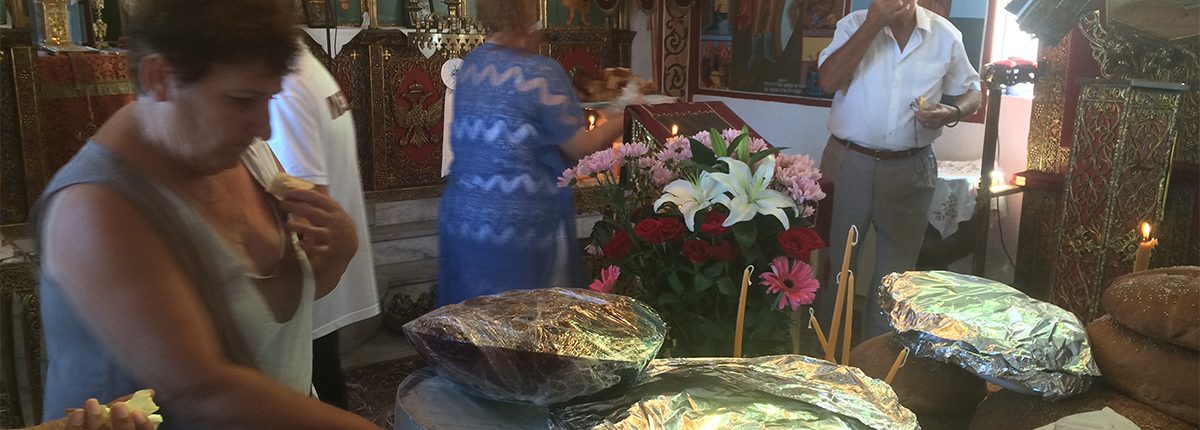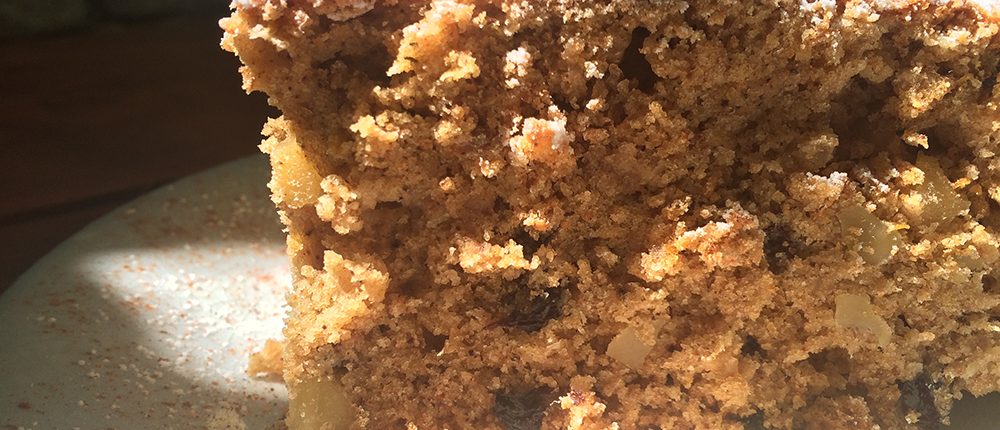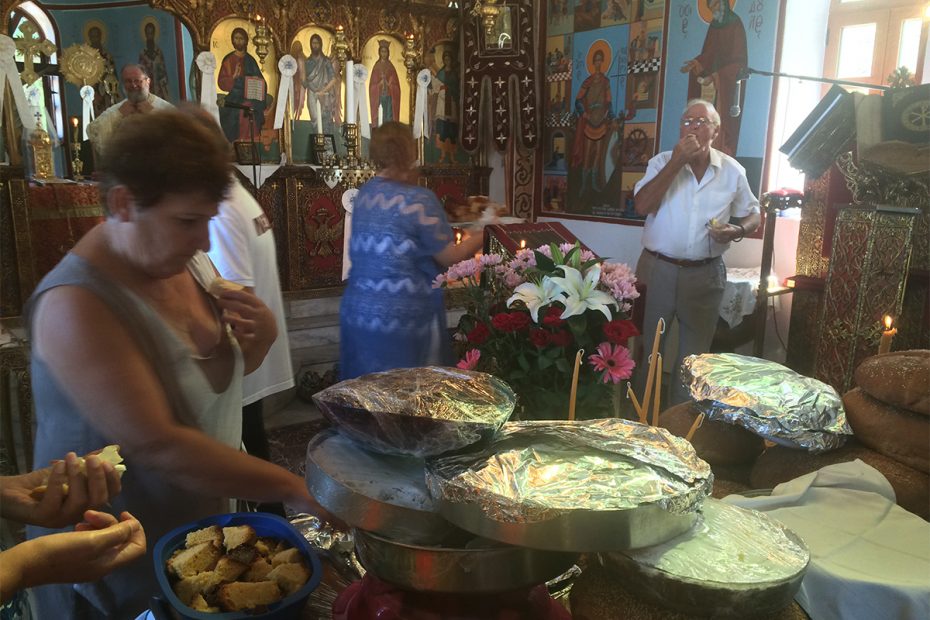BAKING A CAKE FOR A SAINT

Cakes and Artos laid out at the altar on St. Fanourios Day, Aug. 27th, Ikaria.
One of the most endearing aspects of Greek cooking is the tradition of food as symbolism or as an offering, specific dishes prepared to commemorate specific holidays or saints.
We bake Christopsomo, or “Christ’s Bread” on Christmas, St Basil’s bread, Vassilopita, on New Year’s Day, the name day of St. Basil, Varvara, a sweet wheat pudding, to commemorate St. Barbara on December 4th, and more.
Baking to commemorate saints is a Greek Orthodox tradition. “Christmas bread for Jesus, pancakes for Epiphany, cheese pies on Easter, and bread rings for St. Peter,” goes an old saying from the Peloponnese. On January 21, the feast day of St. Anthony, who is thought of as a healer, women on Crete used to bake anthropomorphic breads and breads shaped into various body parts, as an offering for a sick loved one. St. George, whose feast day always falls after Easter, and marks the great springtime migration of itinerant shepherds from the lowlands to the mountains, is celebrated in many parts of Greece with a meal that includes custard pie.
One of my favorite holidays falls at the end of the summer, on 27th to be exact, when St. Fanourios, the “revealing” saint, is commemorated. We usually go to the vespers the evening before and then to the early morning liturgy at one of the little churches on the north side of Ikaria named for St. Fanourios, the “revealing saint.”
St. Fanourios – fanerono in Greek means to reveal — is the patron saint of lost things and the saint to whom one prays for help in finding misplaced possessions or, more metaphorically, for revealing everything from one’s future spouse to the path toward a goal, or more profoundly, toward faith. He is celebrated sprightly on Ikaria and in the evening there is one of the most-beloved local panygyria, in the inland village of Maratho.
In celebration of St. Fanourios, traditional home cooks bake a specific cake, called Fanouropita, a raisin-and-walnut-studded vegan cake made with olive oil and no eggs. The cake traditionally is made with either seven or nine ingredients, representing the 7 or 9 mysteries of the church, the seen days of creation, the nine angels, etc. It is delicious, redolent of fresh oranges, liqueur, cinnamon and cloves. The tradition is to bring the cake to church either in the evening or in the morning of the holiday, where it is blessed and distributed at the end of the liturgy on the 27th.

Greek vegan cake with olive oil, cinnamon, cloves, almonds and orange, aka Fanouropita.
Of course, it doesn’t have to be a holiday to make a fanouropita, so please check out the recipe here! And, if you have lost something, whether material or metaphoric, you can pray to Saint Fanourios to help reveal it any day of the year. Even then, we bake the cake as part of the ritual of asking.






